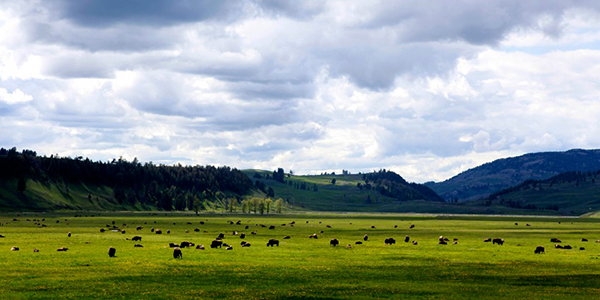
By Derrick Jensen / Orion
This essay was originally printed in the July/August 2013 issue of Orion. Request a free trial issue of Orion here.
Last night a host of nonhuman neighbors paid me a visit. First, two gray foxes sauntered up, including an older female who lost her tail to a leghold trap six or seven years ago. They trotted back into a thicker part of the forest, and a few minutes later a raccoon ambled forward. After he left I saw the two foxes again. Later, they went around the right side of a redwood tree as a black bear approached around the left. He sat on the porch for a while, and then walked off into the night. Then the foxes returned, hung out, and, when I looked away for a moment then looked back, they were gone. It wasn’t too long before the bear returned to lie on the porch. After a brief nap, he went away. The raccoon came back and brought two friends. When they left the foxes returned, and after the foxes came the bear. The evening was like a French farce: As one character exited stage left, another entered stage right.
Although I see some of these nonhuman neighbors daily, I was entranced and delighted to see so many of them over the span of just one evening. I remained delighted until sometime the next day, when I remembered reading that, prior to conquest by the Europeans, people in this region could expect to see a grizzly bear every 15 minutes.
This phenomenon is something we all encounter daily, even if some of us rarely notice it. It happens often enough to have a name: declining baselines. The phrase describes the process of becoming accustomed to and accepting as normal worsening conditions. Along with normalization can come a forgetting that things were not always this way. And this can lead to further acceptance and further normalization, which leads to further amnesia, and so on. Meanwhile the world is killed, species by species, biome by biome. And we are happy when we see the ever-dwindling number of survivors.
I’ve gone on the salmon-spawning tours that local environmentalists give, and I’m not the only person who by the end is openly weeping. If we’re lucky, we see 15 fish. Prior to conquest there were so many fish the rivers were described as “black and roiling.” And it’s not just salmon. Only five years ago, whenever I’d pick up a piece of firewood, I’d have to take off a half-dozen sowbugs. It’s taken me all winter this year to see as many. And I used to go on spider patrol before I took a shower, in order to remove them to safety before the deluge. I still go on spider patrol, but now it’s mostly pro forma. The spiders are gone. My mother used to put up five hummingbird feeders, and the birds would fight over those. Now she puts up two, and as often as not the sugar ferments before anyone eats it. I used to routinely see bats in the summer. Last year I saw one.
You can transpose this story to wherever you live and whatever members of the nonhuman community live there with you. I was horrified a few years ago to read that many songbird populations on the Atlantic Seaboard have collapsed by up to 80 percent over the last 40 years. But, and this is precisely the point, I was even more horrified when I realized that Silent Spring came out more than 40 years ago, so this 80 percent decline followed an already huge decline caused by pesticides, which followed another undoubtedly huge decline caused by the deforestation, conversion to agriculture, and urbanization that followed conquest.
Continue reading →





